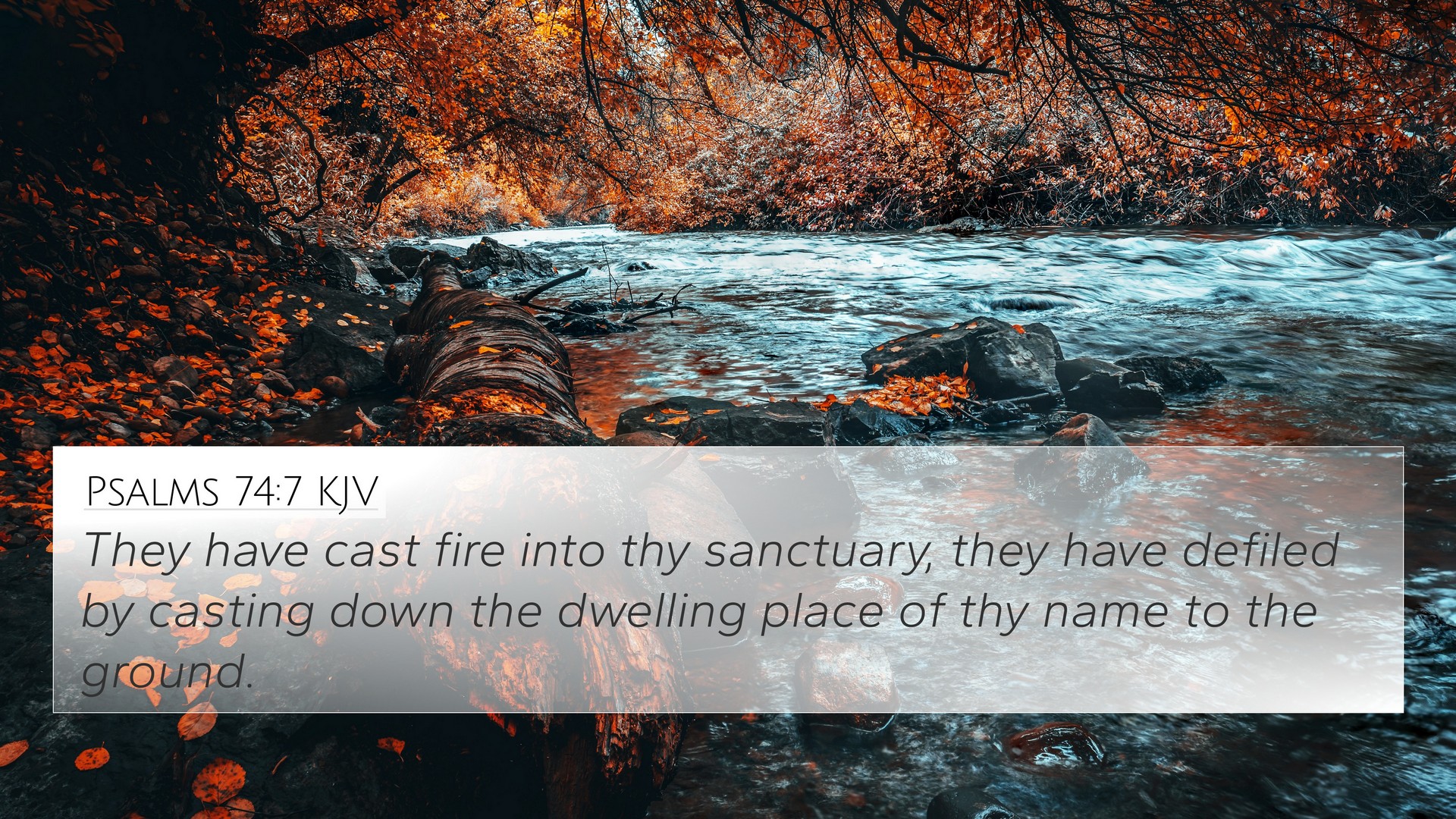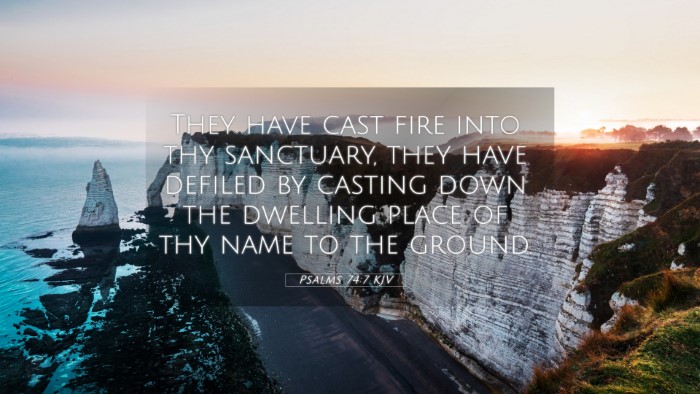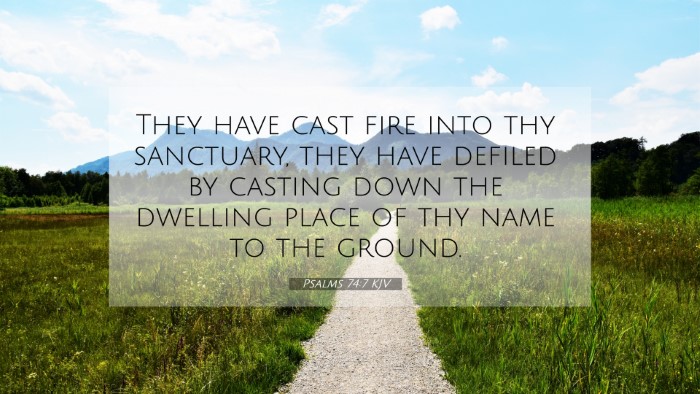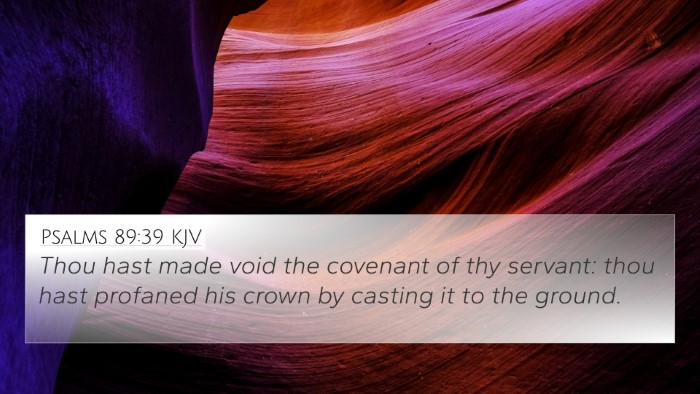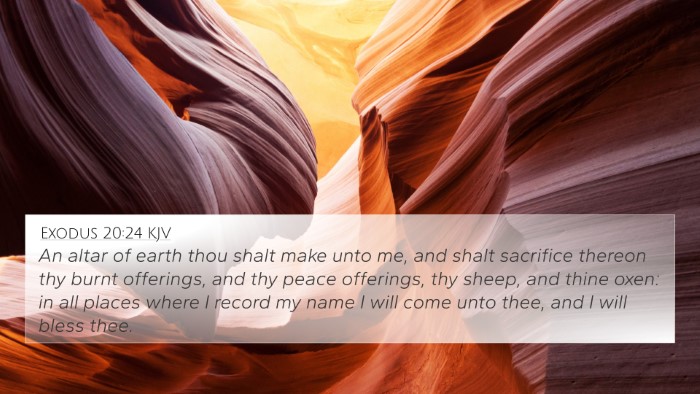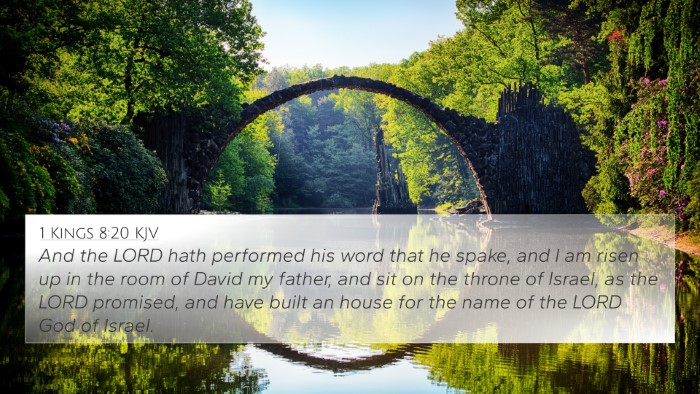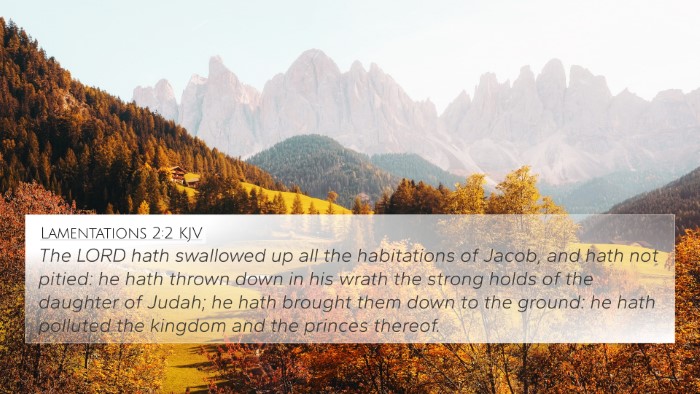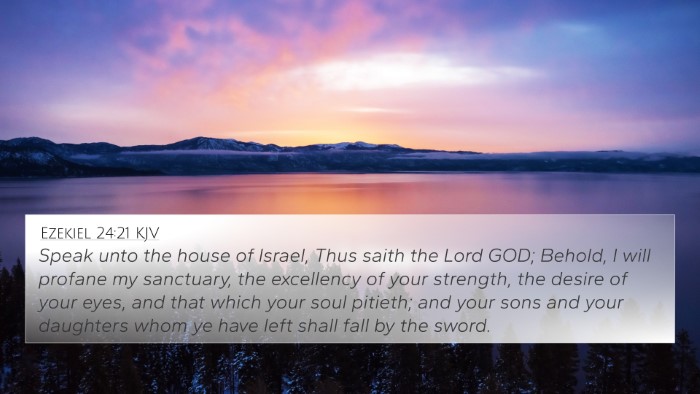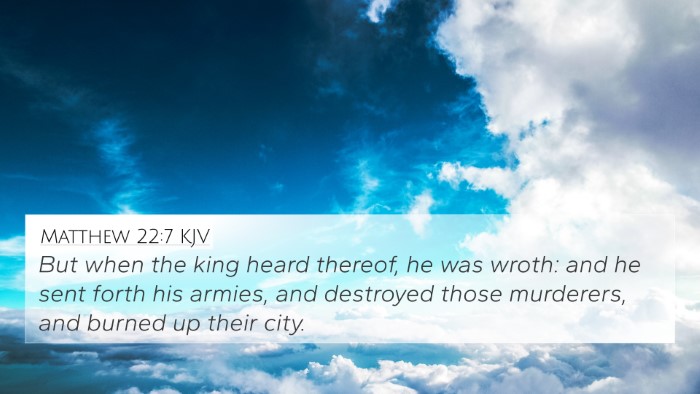Psalms 74:7 - Understanding the Verse
Psalms 74:7 states, "They have cast fire into thy sanctuary, they have defiled by casting down the dwelling place of thy name to the ground." This verse speaks to the destruction and desecration that has taken place in the sacred spaces of worship, reflecting a sense of loss and mourning over the temple's destruction.
Summarized Meaning of Psalms 74:7
In this context, the Psalmist laments the devastation of the temple, symbolizing God's dwelling among His people. The act of casting fire represents both physical destruction and spiritual defilement, as it was common in ancient cultures to desecrate temples of defeated deities. In seeking the meaning of this verse, biblical scholars emphasize its communal cry for restoration and divine intervention.
Insights from Public Domain Commentaries
-
Matthew Henry:
Henry interprets this verse as a depiction of the enemy’s blasphemous actions against God’s honor by destroying His holy sanctuary. He notes that this reflects the depths of human sin and the severity of desolation wrought against the people of God.
-
Albert Barnes:
Barnes emphasizes that the language used portrays a cry for help amidst calamity. He clarifies that the throwing of fire points to the violent acts that often accompanied sieges and conquests, which were both literal and metaphorical in their implication of ruin and pain.
-
Adam Clarke:
Clarke provides an in-depth analysis of the destruction, linking it to the historical events faced by Israel, pointing out that these actions not only anger God but also highlight His people’s vulnerability. He warns against the spiritual implications of turning away from God’s presence.
Thematic Connections
This verse can be cross-referenced with several other biblical texts, revealing a deeper understanding of its themes. Below are some relevant verses:
- 2 Chronicles 36:19: "And they burnt the house of God, and brake down the wall of Jerusalem, and burnt all the palaces thereof with fire, and destroyed all the goodly vessels thereof."
- Lamentations 1:10: "The adversary hath spread out his hand upon all her pleasant things: for she hath seen that the heathen entered into her sanctuary, whom thou didst command that they should not enter into thy congregation."
- Matthew 24:2: "And Jesus said unto them, See ye not all these things? verily I say unto you, There shall not be left here one stone upon another, that shall not be thrown down."
- Hebrews 9:24: "For Christ is not entered into the holy places made with hands, which are the figures of the true; but into heaven itself, now to appear in the presence of God for us."
- Jeremiah 7:14: "Therefore will I do unto this house, which is called by my name, wherein ye trust, and unto the place which I gave to you and to your fathers, as I have done to Shiloh."
- 1 Peter 2:5: "Ye also, as lively stones, are built up a spiritual house, an holy priesthood, to offer up spiritual sacrifices, acceptable to God by Jesus Christ."
- Revelation 21:3: "And I heard a great voice out of heaven saying, Behold, the tabernacle of God is with men, and he will dwell with them, and they shall be his people, and God himself shall be with them, and be their God."
Cross-Referencing Biblical Texts
Utilizing tools for bible cross-referencing is invaluable when studying such complex themes as presented in Psalms 74:7. By employing resources like a Bible concordance or a cross-reference Bible study guide, readers can identify connections between verses and themes relevant to the message of desolation and spiritual longing.
Conclusion
Understanding Psalms 74:7 not only requires an examination of this specific verse but also the exploration of related scriptures, allowing for a comparative analysis that enriches the reader's understanding. The act of linking Bible scriptures provides layers of meaning, demonstrating how the themes of destruction, lamentation, and hope for restoration are woven throughout the biblical narrative.
